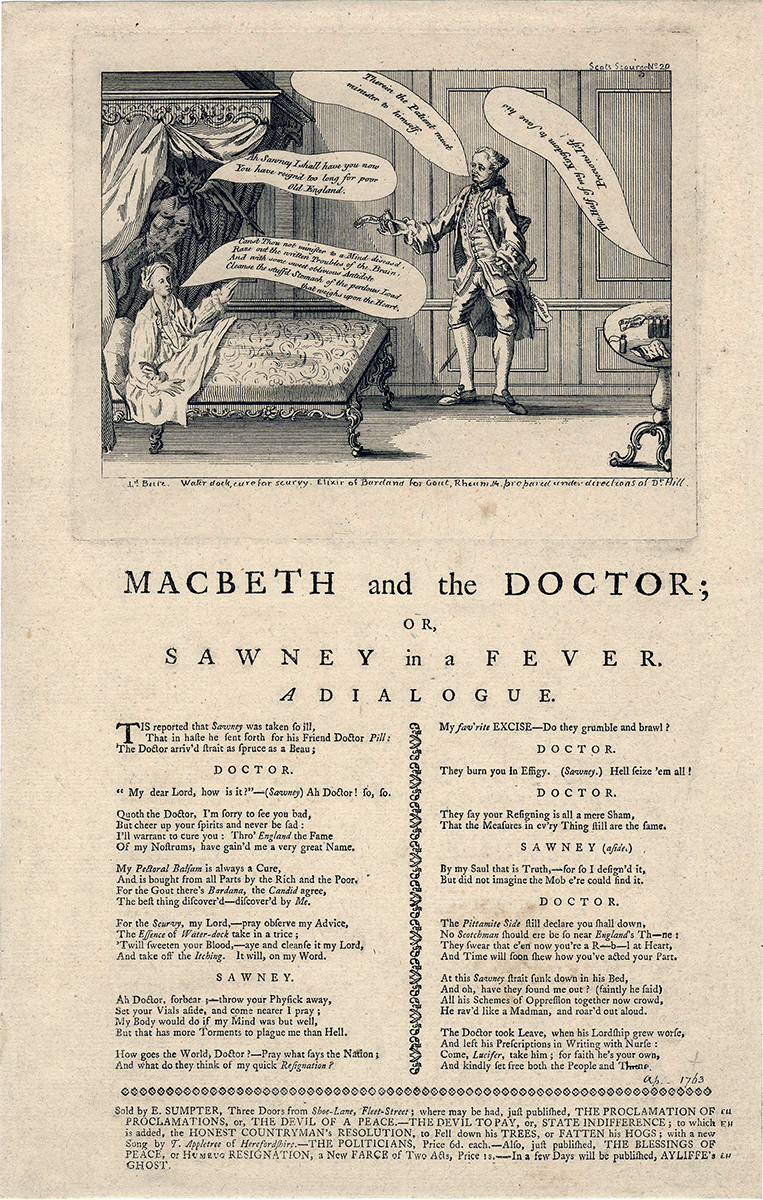
Macbeth and the Doctor; or, Sawney in a Fever
published by: Edward Sumpter
1763
British Museum 1868,0808.4297
From the British Museum curator's comments:
The print is advertised in the Public Advertiser on 3 May 1763, and at the foot of "Ayliffe's Ghost" (BM Satires 4038) and "Jockey Elliot and his Hobby Horse" (BM Satires 4047); the price is given as 6d.
Stephens records advertisements in the Public Advertiser for "Essence of Water Dock" on 30 March 1761 and for "Elixir of Bardana, a new Medicine, Prepared by the Directions of Dr. Hill" on 4 May 1763.
Hill's scientific publications were supported by Bute by 1758 and he helped with the laying out of Kew Gardens.
From the Collection page description:
Broadside satirising Lord Bute and Dr John Hill at the time of Bute's resignation on 9 April 1763. Bute, sick in bed with the devil gloating at his side, addresses Hill in a paraphrase of Macbeth addressing the doctor in Act 5, Scene 3, "Canst Thou not minisiter to a Mind diseas'd .....". The voice of the king (who is not shown) appears in a speech balloon at the right, "The Half of my Kingdom to save his Precious Life!". Hill offers "Water Dock", according to Hawkins a cure for scurvy; in his pocket is "Bardana" for gout, and on a table among other nostrums "Balsam of Hone[y]". Verses beneath in the form of a conversation between the two men make clear that Bute's complaint is mental rather than physical; he begs to know how his resignation has been received and is alarmed to learn that "the Nation" has realised that his "Resigning is all a mere Sham". Etched image with letterpress title and dialogue verses in two columns, and with one vertical and one horizontal segment of type ornament. ([London], Sumpter: [1763])
© The Trustees of the British Museum in the UK
This image is provided courtesy of the British Museum under a Creative Commons Attribution-NonCommercial-ShareAlike 4.0 International (CC BY-NC-SA 4.0) licence. In certain other jurisdictions it is considered to be in the public domain.